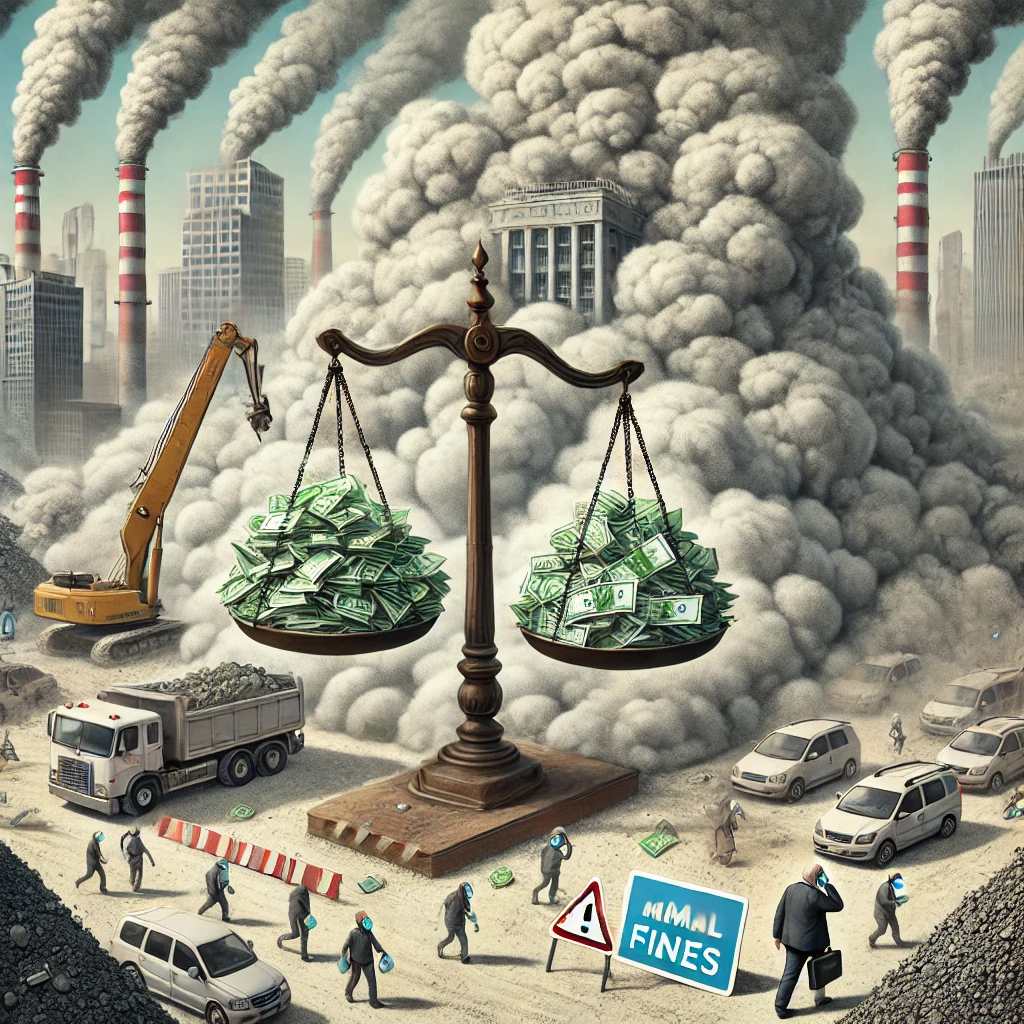Vaib.uz (4 декабря) — Строительные площадки в Узбекистане давно вызывают вопросы у жителей, которые ежедневно страдают от пыли, загрязняющей воздух. Наконец, законодатели обратили внимание на эту проблему, предложив проект закона, который вводит ответственность для застройщиков за несоблюдение экологических стандартов.
Штрафы: сколько это стоит?
Согласно законопроекту, за нарушение требований по охране воздуха предусмотрены следующие штрафы:
- 10-кратная базовая расчетная величина (3,7 млн сумов) за первое нарушение.
- 50-кратная базовая расчетная величина (18,7 млн сумов) за повторное нарушение в течение года.
Звучит солидно? Только на первый взгляд. Для строительных компаний, чей оборот исчисляется миллиардами, такие суммы — скорее, карманные расходы. Это штраф, который легко можно включить в смету, не снижая доходов компании.
Эксперты уже говорят о ряде вопросов, которые возникли к законопроекту:
1. Контроль. Чтобы наложить штраф, нужно доказать нарушение. Кто и как будет это делать? Достаточно ли ресурсов у контролирующих органов, чтобы фиксировать нарушения на каждом из множества объектов?
2. Исполнение. Если контроль будет формальным, компании продолжат игнорировать экологические нормы, предпочитая оплачивать штрафы вместо реального решения проблемы.
3. Долгосрочные изменения. Если застройщикам будет дешевле платить штрафы, чем соблюдать правила, то никакого улучшения экологической ситуации мы не увидим.
По данным экспертов, мелкие частицы пыли, поднимающиеся с открытых строительных площадок, могут проникать в дыхательные пути, вызывая аллергии и заболевания легких. Для городов, таких как Ташкент, с уже высоким уровнем загрязнения воздуха, строительная пыль становится ещё одной угрозой здоровью жителей.
Этот законопроект — важный шаг, который мог бы стать основой для улучшения экологической ситуации. Но будет ли контроль за его исполнением достаточным? Или это окажется очередной инициативой «для галочки»? Мы не раз видели, как хорошие законы теряли смысл из-за слабого контроля и безнаказанности нарушителей.
Нам бы хотелось, чтобы штрафы стали не просто пунктом расходов для строительных компаний, а реальным стимулом соблюдать экологические нормы. И чтобы жители наконец-то почувствовали разницу — не только в воздухе, но и в отношении к их здоровью и благополучию.
А что думаете вы? Смогут ли такие штрафы стать эффективной мерой? Или они так и останутся символическими?











депутаты ! что корчите из себя благодетелей ? вышли на улицы ! посмотрите на дорожки установленные Артыкходжаевым ! они крошатся а крошка поднимает пыль и мы дышим этой заразой !
или вы трусливая стая перед этим бизнесменом ?
При чем здесь законодатели? Почему мы всегда бежим впереди паровоза? Что изменит новый закон или штраф? Есть ли среди нас трезво мыслящий человек? Кто-нибудь предложил решение проблемы «пыли»? Все кругом умные «законотворики»! Ни одного умного строителя «без пыли»! Как строить без пыли? Приведите хотя бы один пример или опыт других стран. Всем нам было больше от этого пользы! Мы тоже умеем на белой бумаге рисовать синие волны…
сразу видно кто ты ! а ты защитник тех кто экологию нам портит ! читай внимательно , очки надень ! написано не про строительство без пыли ! а написано что уложили плиты которые крошатся и поднимают цементную пыль ! пойди и дыши сам ею ! и деток своих приведи, и родителей не забудь !
и никто не проявляет инициативу разобраться в этом ! даже кукольная ЭКО партия и то помалкивает ! вот и написано обращение к депутатам ! чтобы не просиживали задницы в Сенате
а про пыль при строительстве отвечу тоже тебе ,Абра Козлина !
нужно и можно уменьшать как пыль так и вредные выбросы при работах ! не знал ? вот пойди и узнай